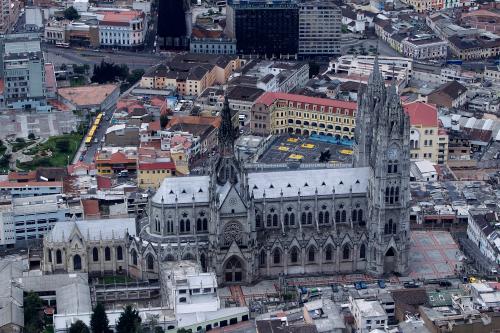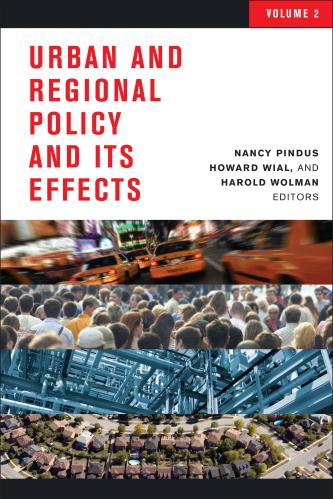When world leaders convene at the Habitat III summit in Quito, Ecuador this month to adopt the New Urban Agenda for sustainable urbanization, they will be taking a historic step that establishes cities as the problem solvers for pressing social and environmental challenges. But for the progress to continue, this historic step has to be followed by another, and the next step for the agenda is financing its implementation.
On this journey, city governments cannot go it alone. While cities and metropolitan regions have emerged as the drivers of the global economy, they work best when they have assertive partners. Central and state governments play vital roles in creating enabling environments for growth and innovation. Private-sector investments have proven ineffective at closing the global infrastructure gap, which current estimates place at nearly $1 trillion per year. The philanthropic and international development community stimulates market activity and improves how public funds are spent.
To finance sustainable cities, the world needs a coordinated approach. International investors—both development agencies and banks—will need to find new ways to invest directly in cities, sometimes bypassing national governments whose attentions are elsewhere. National governments need to work with their cities to develop funding mechanisms and fiscal frameworks that increase cities’ fiscal autonomy and provide for more inclusive distribution of resources. City leaders need to strengthen their capacities to structure urban development projects that match sustainable development plans; coordinate and align investments across sectors and levels of government; and identify and evaluate the merits of innovative funding mechanisms, from land-based financing to public-private partnerships.
The New Urban Agenda gives cities a North Star, highlighting the importance of sustainable finance for providing basic city services as well as creating the infrastructure that will improve quality of life. But as critics have pointed out, the agenda doesn’t include turn-by-turn directions for reforming the institutions, intermediaries, and instruments that undergird urban development finance, building essential functional capacity, and constructing the political economy framework to navigate shifting power dynamics.
In Quito on October 18, Brookings will host a session, “Financing the New Urban Agenda: Multi-Level Metropolitan Finance for 21st Century Cities,” to promote discussion about and provide answers to these questions. Panelists include:
- The Honorable M. Mohamed Sadiki, mayor of Rabat, Morocco, and head of the Committee on Local Finance of the UCLG (Global Network of Cities, Local and Regional Governments).
- Luiz de Mello, deputy director for public governance and territorial development at the Organization for Economic Cooperation and Development (OECD).
- George McCarthy, president of the Lincoln Institute of Land Policy.
- Khadydia Sarr, director of the Municipal Finance Program of the city of Dakar, Senegal.
The session will highlight examples of successful urban finance strategies and specific projects underway that can help leaders make better decisions about finance. Building on the themes of Brookings’s Project on 21st Century City Governance, the session will push for a clearer articulation of the governance challenges at the heart of efforts to finance the New Urban Agenda.
Please join our session in Quito and follow us on twitter (@harknessa, @conroy) and Instagram (BrookingsInst) for posts on #Habitat3 and the #NewUrbanAgenda.
The Brookings Institution is committed to quality, independence, and impact.
We are supported by a diverse array of funders. In line with our values and policies, each Brookings publication represents the sole views of its author(s).










Commentary
Financing the “New Urban Agenda”: Multi-level metropolitan finance for 21st century cities
October 7, 2016